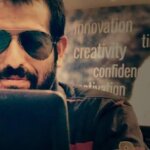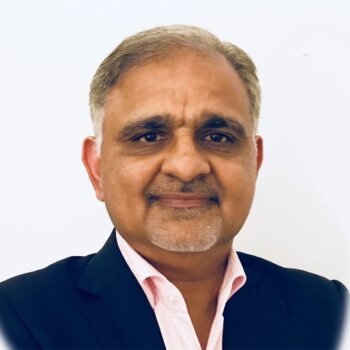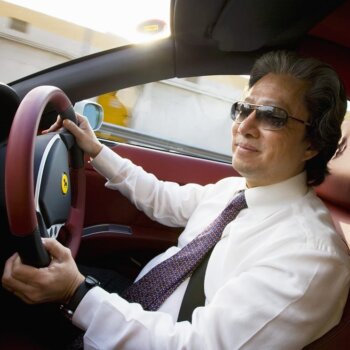“Health is a right, not a need or desire.” Find out how this entrepreneur plans to improve patient care, streamline health services and enable everyone to have the best experience in reaching good health.
What’s your story?
Health Care has been my passion since I can remember. Being able to develop and successfully implement ideas to improve our health care system is important to me. I began with an anatomy, human and developmental degree and went on to study my Masters in Public Health. This is where my passion for healthtech heightened. Understanding the pitfalls in our system and seeing poorly run inefficient services channeled my desire to change it. The UK has such a brilliant public health system, nowhere else in the world can actively say everyone no matter how rich or poor, can receive good health care at their fingertips. I began my journey into healthtech, and worked on the team that developed babylon. The first mobile app, bringing GPs to the phone. I focused on the CQC regulatory component, and began to see how difficult it is for healthtech to really break into the public health system in the UK. Despite this, babylon is now the most successful app of its kind! I now work for a startup called Medefer, we have developed an enhanced referral management system that strives to connect primary and secondary care allowing a truly seamless integrated service, bringing a specialist into the community. We aim to save costs for the NHS, improve patient care, and streamline, what is, a very archaic system!
What excites you most about your industry?
Health is a right, not a need or a desire. Every person has the right to good and easily accessible healthcare. Being able to be part of the revolution to make this happen is exciting and a privilege. I had always wanted to be a Doctor, but from working closely with a multitude of stakeholders and healthcare professionals, it is not easy to see that to make a real difference, we must focus our energies on developing efficient technology systems. This will have the benefit to outreach nationally to every person, enabling every person to have the best experience in reaching good health.
What’s your connection to Asia?
My mum is Indian, and I have visited India many times. I love visiting and immersing myself in the culture. The place is magical, as is the whole of Asia, the people and their outlook on life is inspiring. You can visit the poorest places, and people will be smiling and content. The healthcare system out there is a stark contrast to what we have in the UK. My company is currently working on a concept known as smart villages, aiming to bring more efficient energy grids, connecting the remote villages. With this, we aim to provide these villages with remote healthcare professional services via the internet.
Favourite city in Asia for business and why?
Singapore is a leading city for innovation and leadership vision. It is a young, vibrant place, which constantly strives for improvements and changes.
What’s the best piece of advice you ever received?
Do what you love, love what you do! Make a real impact and change in the world, as your footprint will last forever.
Who inspires you?
My family are my inspiration. My mum came over as an immigrant to the UK and is a huge role model to me. She is an education consultant and has dedicated her life to improving the education in the UK, as well as globally. She went to India to train teachers!
What have you just learnt recently that blew you away?
How hard it is to crack into the NHS! The red tape and politics will be the death of the NHS and it is such a beautiful system. We need more people to help advocate for change, and allow young tech start ups to come in, and improve the inefficiencies.
If you had your time again, what would you do differently?
I would have studied medicine and become a doctor. I would love to work for Medecins sans Frontiers. But, it is never too late!
How do you unwind?
I do a lot of yoga and pilates. Yoga especially gives you that 1 hour to push my body and free your mind. We all need to take that 1 hour in our lives to breathe and focus on our body. We forget how much hard work our body does for us!!
Favourite Asian destination for relaxation? Why?
Bali is by far one of the most beautiful, idyllic places I have seen. I really love snorkelling and the sea life is amazing. The culture is beautiful, and the spirituality is infectious.
Everyone in business should read this book:
The lean startup by Eric Ries.
Shameless plug for your business:
Medefer is a healthcare provider, developing smart innovative solutions, to combat the inefficiencies within the NHS. We believe our solutions can spread to public health systems globally, to enhance and integrate services, improving patient outcomes.
How can people connect with you?
[email protected]
Twitter handle?
medefer
—
This interview was part of the Callum Connect’s column found on The Asian Entrepreneur:
Callum Laing invests and buys small businesses in a range of industries around Asia. He has previously started, built and sold half a dozen businesses and is the founder & owner of Fitness-Buffet a company delivering employee wellness solutions in 12 countries. He is a Director of, amongst others, Key Person of Influence. A 40 week training program for business owners and executives.
Take the ‘Key Person of Influence’ scorecard <http://www.keypersonofinfluence.com/scorecard/>
Connect with Callum here:
twitter.com/laingcallum
linkedin.com/in/callumlaing
Get his free ‘Asia Snapshot’ report from www.callumlaing.com
































